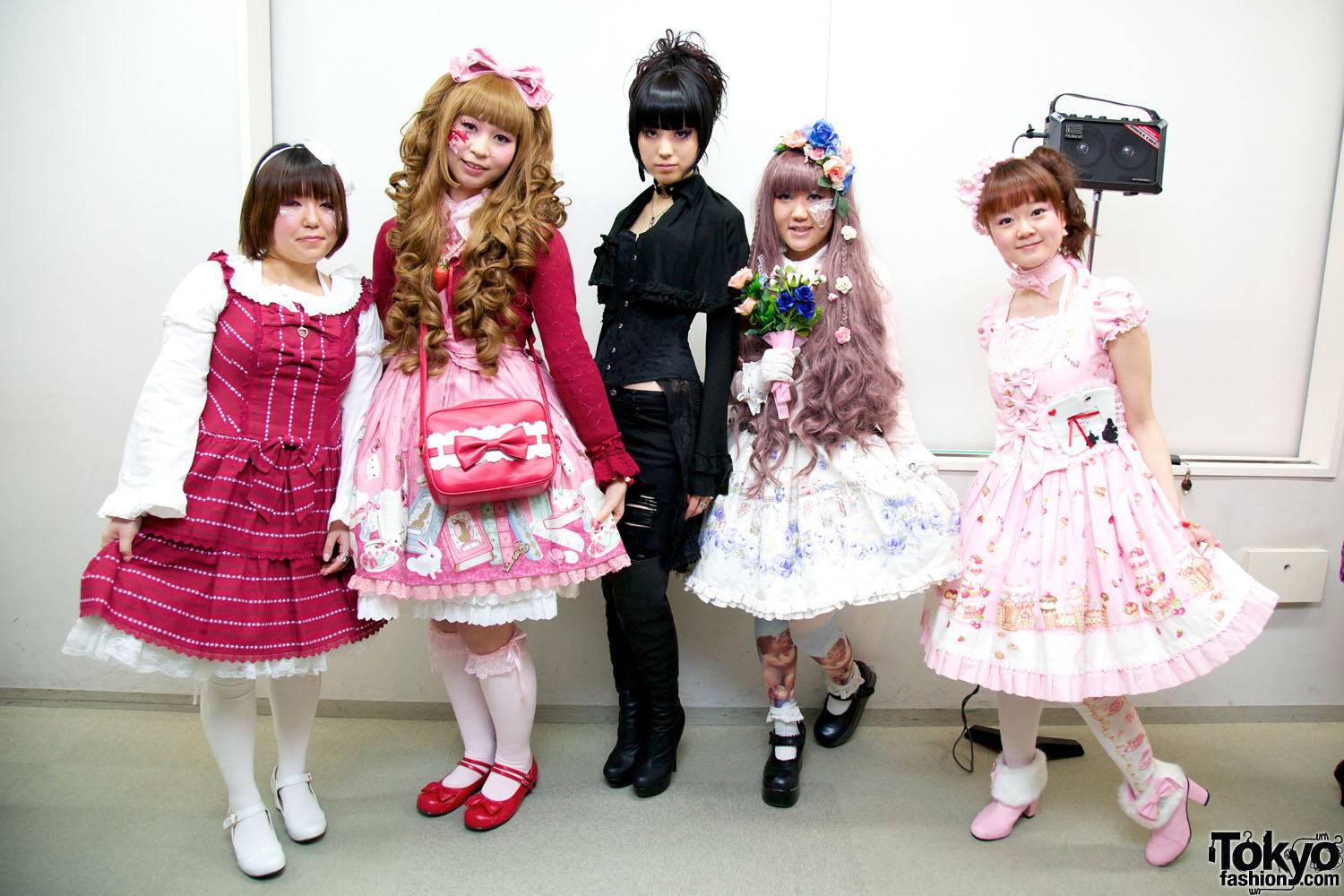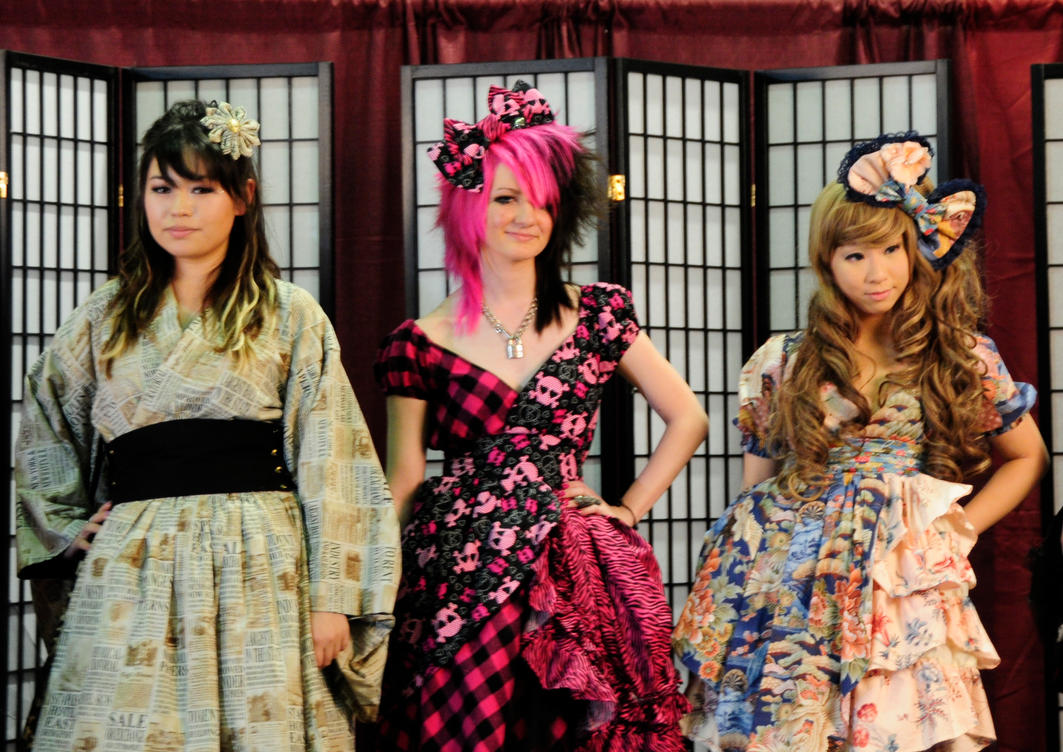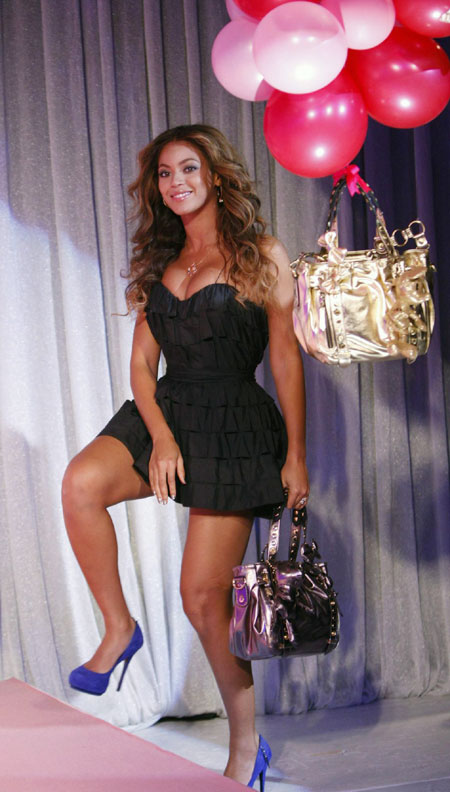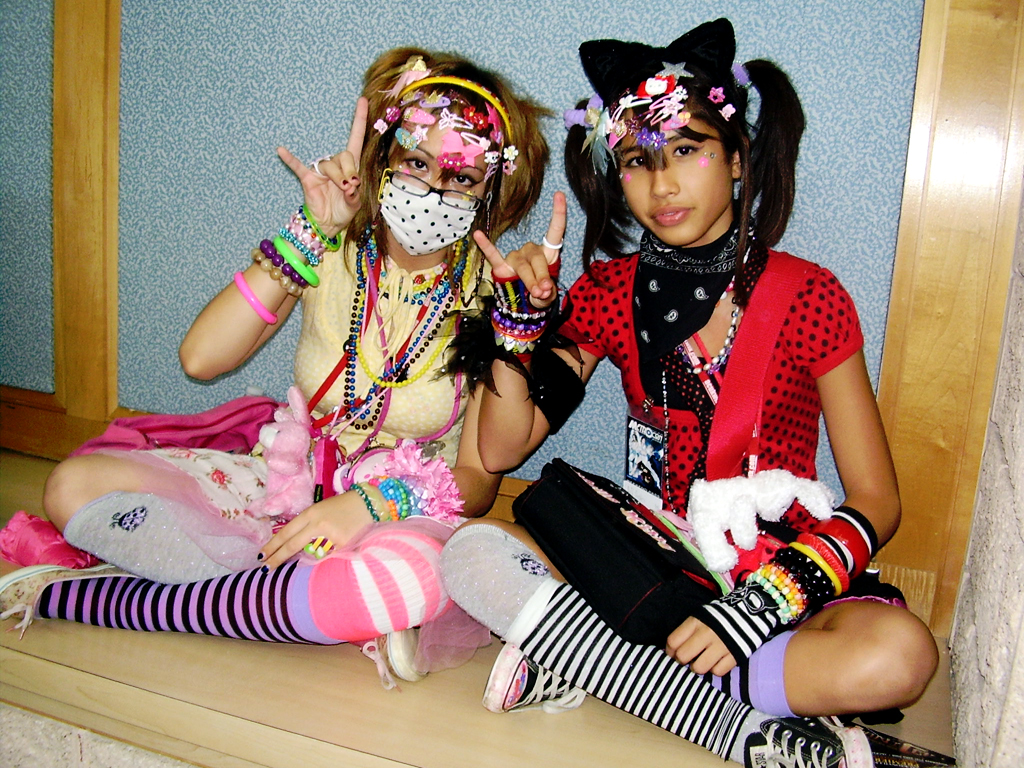Japanese Fashion
Japan began to emulate Western fashion during the middle of the 19th century. By the beginning of the 21st century, this emulation has formed street fashion, a fashion style in which the wearer customizes outfits by adopting a mixture of current and traditional trends. Such clothes are generally home-made with the use of material purchased at stores.
At present, there are many styles of dress in Japan, created from a mix of both local and foreign labels. Some of these styles are extreme and avant-garde, similar to the haute couture seen on European catwalks. The rise and fall of many of these trends has been chronicled by Shoichi Aoki since 1997 in the fashion magazine FRUiTS, which is a notable magazine for the promotion of street fashion in Japan.
More recently[when?], Japanese hip-hop, which has long been present among underground Tokyo's club scene, has influenced the mainstream fashion industry.[1] The popularity of the music is so influential that Tokyo's youth are imitating their favorite hip hop stars from the way they dress with over-sized clothes to tanned skin. The idea of darkening one's skin to more closely resemble an American hip-hop star or ethnic group may seem like a fad, but this subculture, the black facers, do not particularly set themselves apart from many other sub cultures that have emerged as a result of hip hop.[2]
The Decora style originated in the late 90s/early 2000's and rose to great popularity both in and outside Japan. The clothes are usually in black, dark pink or baby pink, but other neon colors were also acceptable (pastels could be found rarely). A plain shirt and hoodie was often worn with short tutu-like skirts in the same color-way. The hair(often worn in low ponytails with long bangs) and make-up itself is quite plain. However, the most significant part of decora is to pile on tons of cute accessories until the bangs and shirt are barely visible. Stockings, legwarmers, armwarmers and knee socks are also worn atop each other in different layers. Common details also include leopard prints and patterned dental masks. The style was eventually merged/replaced in the late 2000s by fairy kei and OTT-lolita in Japan. Though it is still a relatively popular style overseas.
Visual kei is a style created in the mid-1980s by Japanese musicians consisting of striking makeup, unusual hair styles and flamboyant costumes, similar to Western glam rock and glam metal. Androgyny is also a popular aspect of the style. Some of the more well-known and influential artists of the style include X Japan, Luna Sea and Malice Mizer.
Japan began to emulate Western fashion during the middle of the 19th century. By the beginning of the 21st century, this emulation has formed street fashion, a fashion style in which the wearer customizes outfits by adopting a mixture of current and traditional trends. Such clothes are generally home-made with the use of material purchased at stores.
At present, there are many styles of dress in Japan, created from a mix of both local and foreign labels. Some of these styles are extreme and avant-garde, similar to the haute couture seen on European catwalks. The rise and fall of many of these trends has been chronicled by Shoichi Aoki since 1997 in the fashion magazine FRUiTS, which is a notable magazine for the promotion of street fashion in Japan.
More recently[when?], Japanese hip-hop, which has long been present among underground Tokyo's club scene, has influenced the mainstream fashion industry.[1] The popularity of the music is so influential that Tokyo's youth are imitating their favorite hip hop stars from the way they dress with over-sized clothes to tanned skin. The idea of darkening one's skin to more closely resemble an American hip-hop star or ethnic group may seem like a fad, but this subculture, the black facers, do not particularly set themselves apart from many other sub cultures that have emerged as a result of hip hop.[2]
The Decora style originated in the late 90s/early 2000's and rose to great popularity both in and outside Japan. The clothes are usually in black, dark pink or baby pink, but other neon colors were also acceptable (pastels could be found rarely). A plain shirt and hoodie was often worn with short tutu-like skirts in the same color-way. The hair(often worn in low ponytails with long bangs) and make-up itself is quite plain. However, the most significant part of decora is to pile on tons of cute accessories until the bangs and shirt are barely visible. Stockings, legwarmers, armwarmers and knee socks are also worn atop each other in different layers. Common details also include leopard prints and patterned dental masks. The style was eventually merged/replaced in the late 2000s by fairy kei and OTT-lolita in Japan. Though it is still a relatively popular style overseas.
Visual kei is a style created in the mid-1980s by Japanese musicians consisting of striking makeup, unusual hair styles and flamboyant costumes, similar to Western glam rock and glam metal. Androgyny is also a popular aspect of the style. Some of the more well-known and influential artists of the style include X Japan, Luna Sea and Malice Mizer.
Japanese Fashion
Japanese Fashion
Japanese Fashion
Japanese Fashion
Japanese Fashion
Japanese Fashion
Japanese Fashion
Japanese Fashion
Japanese Fashion
Japanese Fashion
Japanese Fashion
Japanese Fashion
Japanese Fashion
Japanese Fashion
Japanese Fashion
Japanese Fashion
Japanese Fashion
Japanese Fashion
Japanese Fashion
Japanese Fashion




















0 comments :
Post a Comment